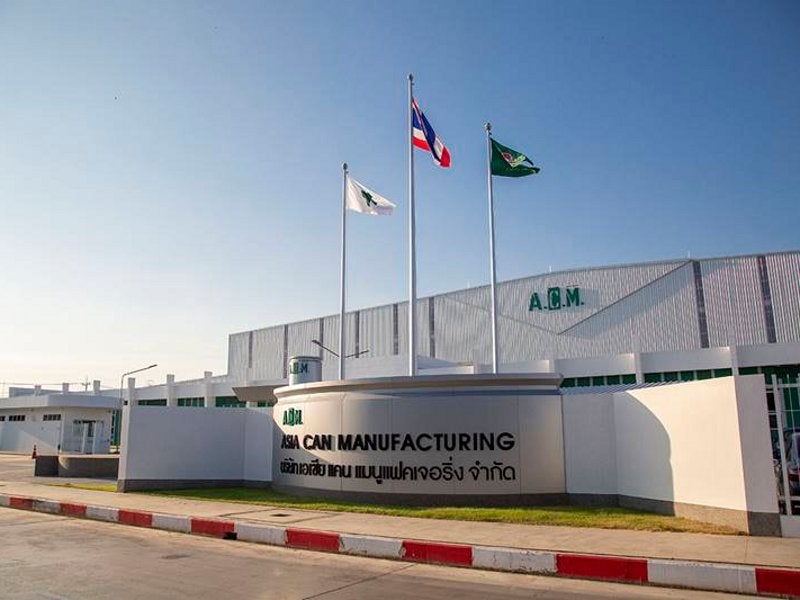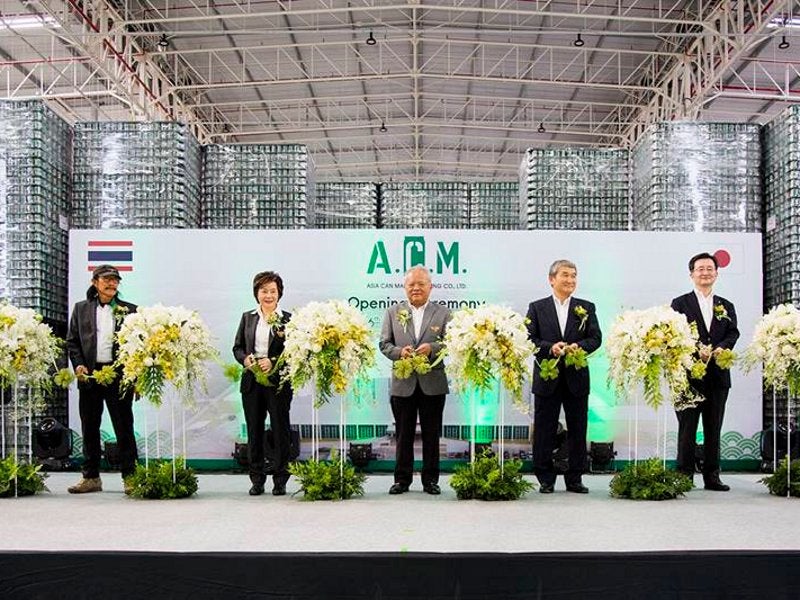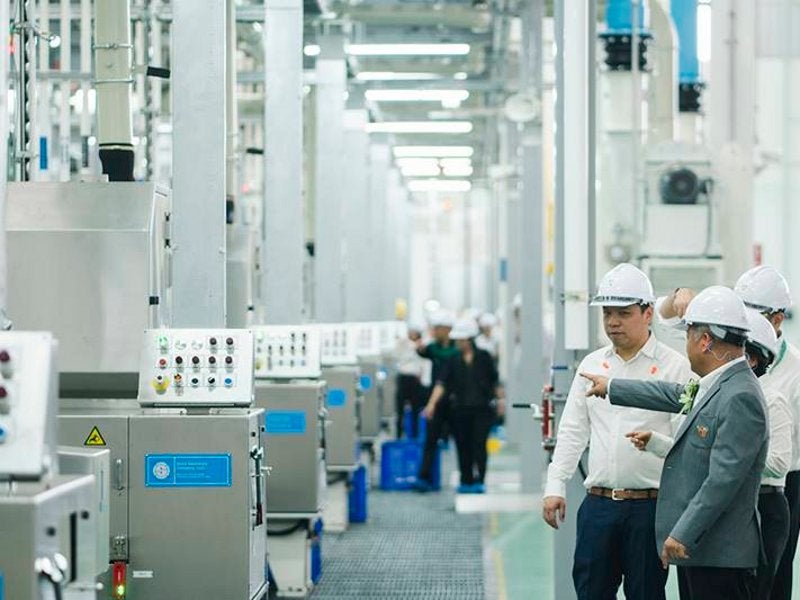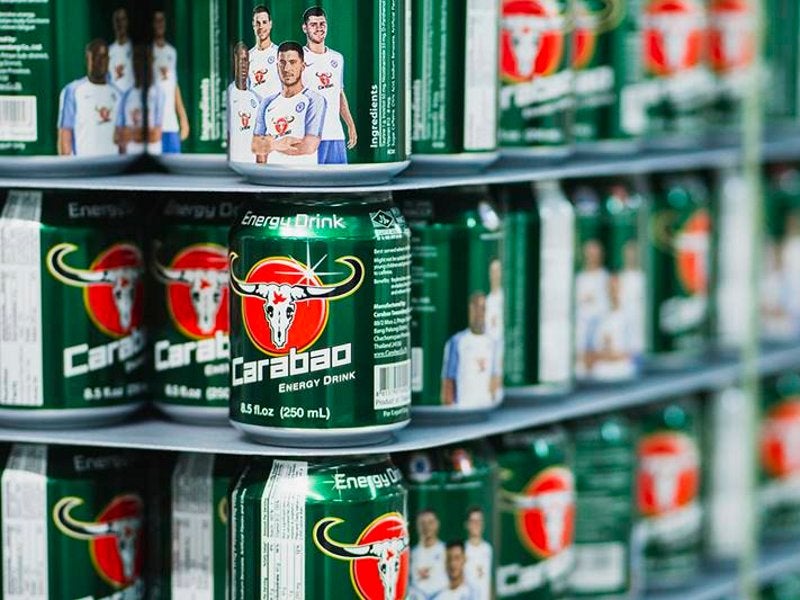Asia Can Manufacturing’s aluminium can manufacturing plant in Thailand was opened in December 2018.
The aluminium cans made at the factory are supplied to a beverage factory operated by Carabao Group (CBG), a beverage maker based in Thailand. The cans are used for packaging Carabao energy drinks.
Built with a THB700m ($21.3m) investment, the can-making factory will help Asia Can Manufacturing (ACM) meet the increasing demand for aluminium beverage cans while allowing CBG to increase its energy drink sales in south-east Asian countries, including China, as well as in the UK.
It will also reduce CBG’s dependency on aluminium cans supplied by external companies.
The foundation stone-laying ceremony of the plant was held in July 2017, while operations were started in December 2018.
ACM’s aluminium can manufacturing factory details
The aluminium can manufacturing factory is located on a 12.8-acre site owned by CBG’s Thai subsidiary Asia Pacific Glass (APG) in Bang Pakong district of Chachoengsao Province in Bangkok, the Kingdom of Thailand.
With a built-up area of 22,000m², the plant can accommodate two aluminium can production lines.
The factory currently has a single production line with a capacity of up to one billion high-quality beverage cans a year. The state-of-the-art machinery produces recyclable 250ml beverage cans using aluminium.
The upper surface of the can is equipped with reusable lids supplied by Vietnamese can maker Hanacans.
The cans package Carabao Sugar-Free, Original, and Green Apple products of Carabao’s carbonated energy drink, which is one of the biggest brands in Thailand.
Can manufacturing process
Showa Aluminum Can, an aluminium beverage cans manufacturer based in Japan, supplied expertise for ACM’s can-making plant, including moulding of cans and lids, as well as label printing.
The lightweight cans are made of two pieces of aluminium using a drawing and ironing (D&I) process, which involves drawing of an aluminium sheet into a shallow cup using a metal-forming press machine.
The cup is conveyed into a horizontal redrawing die, following which the sidewall is thinned. The domed bottom structure is formed through the doming die. Lubricants are applied on the surface of the metal to minimise fracture of the body.
The V-shaped cross-section profile on top of the can is pressed to form a groove of a drinking mouth portion. The label is printed on the outside of the curved surface.
Marketing commentary on Asia Can Manufacturing
Asia Can Manufacturing, formerly known as Asia Pacific Can, is a joint venture (JV) between Carabao Group and Showa Aluminum Can, a subsidiary of Japanese chemical engineering firm Showa Denko. Carabao owns a 74% stake in the JV, while the remaining is held by its partner.
The JV was announced in March 2017 and established in June 2017. It is part of Showa Denko’s ongoing Project 2020+ medium-term business plan, which is aimed at expanding the company’s business in south-east Asia.
Asia Can Manufacturing was renamed from Asia Pacific Can in December 2017. ACM is involved in manufacturing and producing aluminium cans for packaging for energy drinks and other beverages.







